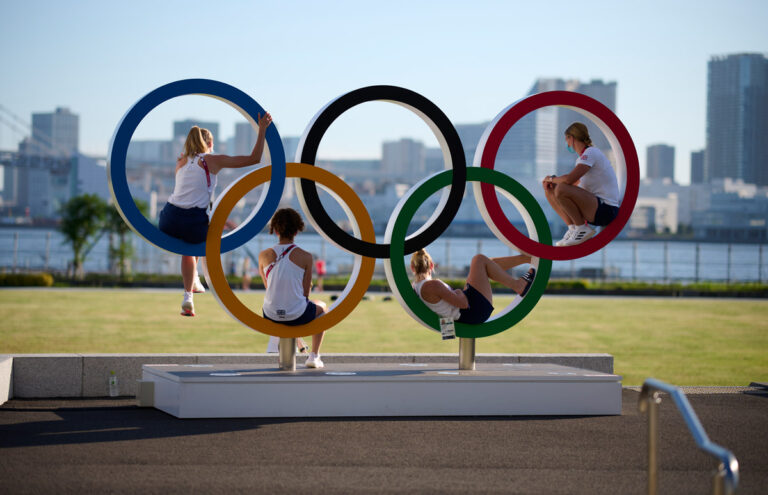TikTokers are using Grindr to out LGBTQ Olympians, endangering them around the world

Using Grindr’s ‘Explore’ feature, some TikTik content creators navigated to Tokyo’s Olympic Village in the app and scrolled through the profiles to find potential LGBTQ+ Olympians following a similar trend using Tinder’s ‘Passport’ feature. The dangerous trend was initially discovered by Insider, after the publication found a video shared on TikTok with over 10,000 likes.
But the risks for LGBTQ athletes using Grindr could be more severe than for straight athletes using Tinder, as homosexuality remains a crime in several countries represented at the Olympic Games. The posts, which we will not be linking to in an effort to protect the privacy of individuals featured in the screenshots, could potentially out athletes from anti-LGBTQ+ countries, “as well as nearby Japanese people who live in a culture that Amnesty International says systemically discriminates against gay people,” Insider added.
On the video-sharing platform, at least four videos exposed Olympic Village Grindr profiles. But the trend quickly migrated to Twitter too, where over ten similar posts had been made. Some screen recordings zoomed in on specific profiles that showed athletes’ full faces and identifying information. One video went viral on TikTok with over 140,000 views. It had been pushed onto some users’ For You Page.
“I used Grindr’s explore feature to find myself an Olympian boyfriend,” the post said. The video showed the user navigating to Tokyo’s Olympic Village before they scrolled, revealing over 30 full users’ faces, with several profiles noting they were there for the Olympics. The profile of one user whose face was exposed signalled that he was from a country known for anti-LGBTQ+ politics.
Meanwhile in the comments, other users criticised the creator for exposing the profiles. “Gay culture in Japan still isn’t supported. Don’t put these peeps in jeopardy just to get off on the other side of the world,” one commenter wrote. The original poster responded by saying, “Appreciate you bringing this concern to the community’s attention,” though the video remained on the app up until Wednesday 28 July when TikTok removed it for violating community guidelines.
Shortly after Insider shed light on the risks of this trend, a Twitter spokesperson said the tweets “violated the Twitter Rules against hateful conduct and will need to be removed before the account owners can continue to use Twitter.” A Grindr spokesperson also told the publication, “These individuals are in breach of Grindr’s Terms and Conditions of Service which prohibit them from publicly displaying, publishing, or otherwise distributing any content or information that are part of the Grindr services. Out of respect for our users’ privacy, and out of respect for the contractual commitments these individuals made, Grindr demands that these individuals remove their social media posts that include images from the Grindr platform.”
The 2020 Olympics is hosting delegations from multiple countries that have taken hostile stances towards LGBTQ+ people, including 11 nations in which homosexuality is potentially punishable by death, according to the Human Dignity Trust. These include Afghanistan, Brunei, Iran, Mauritania, Nigeria, Qatar, Saudi Arabia, Somalia, Sudan, United Arab Emirates, and Yemen.
Sadly, this is not the first time people have tried using dating apps to out LGBTQ+ people at the Olympics. During the 2016 Rio de Janeiro Olympics, a Daily Beast journalist used Grindr to locate LGBTQ+ athletes at the games. The reporter, Nico Hines, claimed that he was investigating whether the Games were a “hotbed of partying athletes, hookups, and sex, sex, sex.”
In the past, human rights advocates called for the International Olympic Committee (IOC) to bar countries that criminalise homosexuality from competition. If enacted, that policy could result in over a quarter of participating countries being banned. The IOC hasn’t yet offered a public statement on whether it intends to take action.





